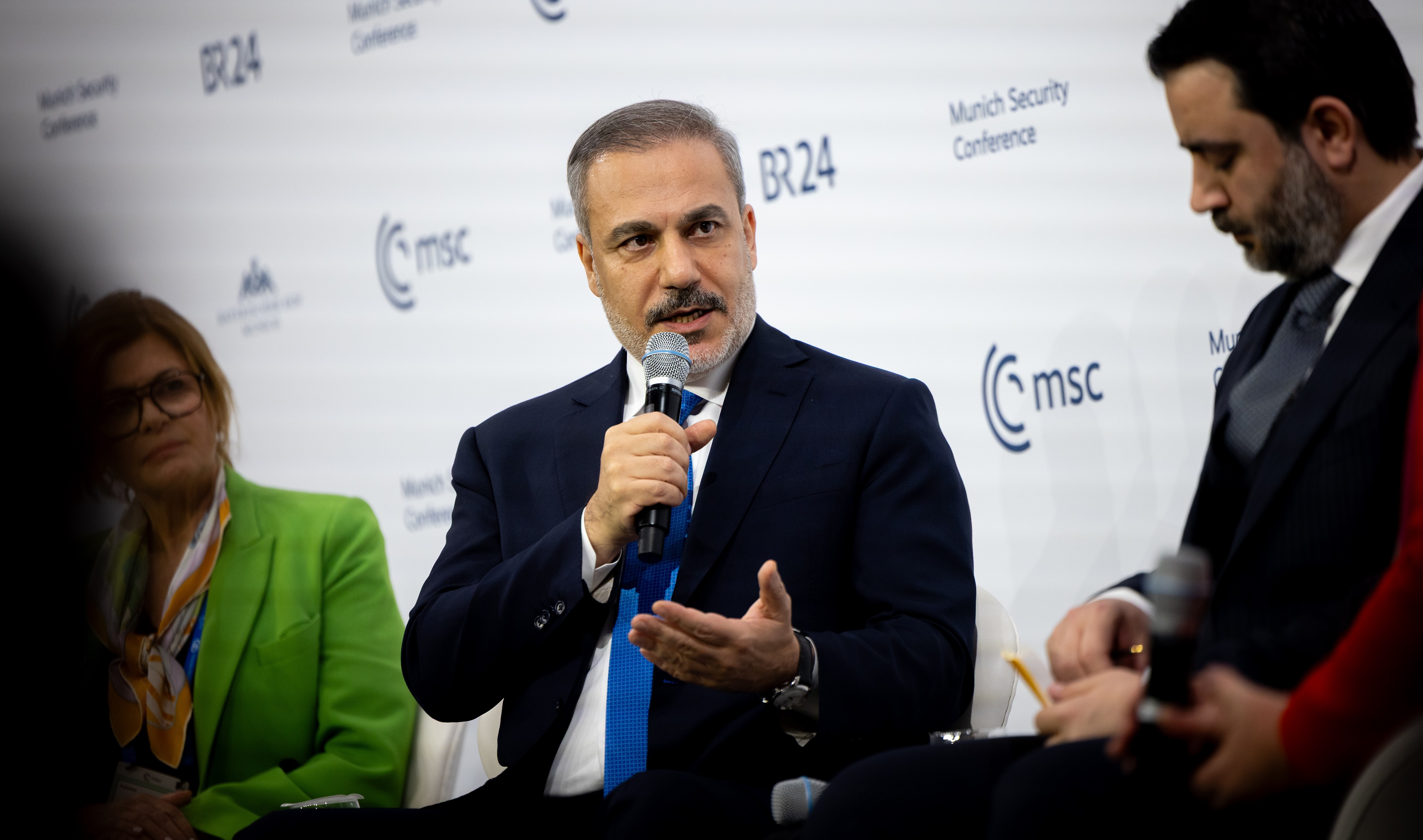Turkish FM Warns of PKK/YPG Threat in Syria
Speaking at the 61st Munich Security Conference in Germany, Fidan emphasized that Turkey expects Syria to take decisive action against these groups, which he equated with Daesh (ISIS) in terms of regional instability.

ERBIL (Kurdistan24) – Turkish Foreign Minister Hakan Fidan has reiterated Ankara’s concerns over the presence of PKK/YPG forces in northern Syria, calling them a major security threat to the region.
Speaking at the 61st Munich Security Conference in Germany, Fidan emphasized that Turkey expects Syria to take decisive action against these groups, which he equated with Daesh (ISIS) in terms of regional instability.
During a panel titled “New Dawn for Damascus: Prospects for Syria’s Transition,” Fidan stated that Turkey is recalibrating its approach to Syria, with a focus on reconstruction, economic recovery, and governance reform.
However, he stressed that the presence of PKK/YPG forces remains an obstacle to long-term stability in Syria and the broader region.
Fidan warned that international terrorist fighters from Turkey, Iraq, and Iran are concentrated in northern Syria, where they continue to operate under the pretext of fighting Daesh (ISIS).
He argued that the occupation of nearly one-third of Syrian territory by PKK/YPG elements is not only a direct threat to Turkey’s national security but also a destabilizing factor for Syria’s sovereignty.
“You cannot allow these people to occupy one-third of the country, sit on the oil and gas fields, rob the country, and deny millions of other Syrians access to their resources,” Fidan stated.
He urged for an end to what he described as the unlawful control of vital resources by the PKK/YPG, emphasizing that Syria's central government must reassert its authority.
A New Approach to Syrian Stability
According to Fidan, regional countries are now in consensus regarding Syria’s future.
He noted that when the Assad regime collapsed, regional actors came together to outline expectations for the post-war administration in Damascus.
These expectations, he said, included ensuring Syria’s territorial integrity, preventing the rise of terrorist elements, and establishing an inclusive government that safeguards minority rights.
“We don’t want to see any more threats to neighboring countries. We don’t want to see terrorism flourishing or finding a ground for itself,” Fidan emphasized, outlining Turkey’s vision for Syria’s long-term stability.
He added that the new administration in Syria had responded positively to these regional and international demands.
A key issue raised by Fidan was the unification of armed groups in Syria.
He underscored the need for a single, legal armed force under state control, warning that the continued existence of multiple militias would hinder efforts to restore public order and security.
“They [the Syrian administration] are taking the right steps in uniting the armed groups,” Fidan noted. He stressed that no country can maintain stability if it lacks a unified military structure and called on all factions within Syria to integrate into a national army.
Turkey’s Role in Syria’s Transition
Fidan highlighted Türkiye’s ongoing role in Syria’s transition, explaining that Ankara had previously intervened to protect populations living under opposition control.
Recalling the Astana process, he stated that Turkey had sought to shield nearly five million people, many of whom now participate in governance structures in Syria.
“Our primary objective now is to help Syria rebuild its economy, reconstruct its institutions, and re-establish governmental authority,” he said.
However, he insisted that addressing security concerns, particularly the PKK/YPG issue, remains Turkey’s top priority in negotiations with Syria.